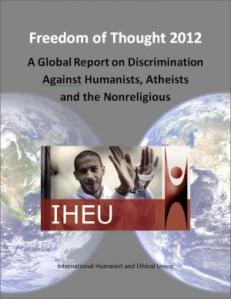 I happened to catch a fascinating interview with an American writer now living in Australia, Amy Espeseth, talking about her first novel, Sufficient Grace.
I happened to catch a fascinating interview with an American writer now living in Australia, Amy Espeseth, talking about her first novel, Sufficient Grace.
It captured my attention for two reasons:
One, I can’t help but take notice when I hear anyone speaking of experiences similar to mine;
Two, the recent suggestion that I and anyone who questions the existence of Jesus and the arguments of “Jesus historicists” is necessarily driven by a need compensate for some past bad experiences with religion and is thus on a vendetta to attack and undermine religion by any means possible.
I have not read the book but I was captivated by, and definitely related to, Amy’s sympathetic approach to the people who are bound to their cult. There is a beauty in their lives. The first half of the novel, I understand, explores this rewarding and charming existence. Then half way through a darkness appears. The child everyone in the community believes to be so wonderful and destined to be their new leader is seen by his cousin as he really is, and it is not pretty.
On the outside the lives of the members appear to be so beautiful. At the same time, however, they are cut off, cocooned from the rest of the world, and in that isolation every family seems to have a dark secret that must be hidden at all costs.
I was surprised by Amy Espeseth’s response when asked if she had any regrets about writing the book. She said Yes, she did. She unavoidably caused pain to some people she loved. Continue reading “The beauty and the pain of fundamentalist religion”








 I grew up in a very strict fundamentalist Protestant denomination called The Church of the Nazarene. We shunned “worldly” things like going to the movies, playing cards, dancing, smoking, etc. We were, literally, “holy-rollers” — believing in a distinct, second work of grace after conversion. First you’re converted; then you’re sanctified by the Holy Spirit. We took the Bible very literally and accepted it as the living Word of God.
I grew up in a very strict fundamentalist Protestant denomination called The Church of the Nazarene. We shunned “worldly” things like going to the movies, playing cards, dancing, smoking, etc. We were, literally, “holy-rollers” — believing in a distinct, second work of grace after conversion. First you’re converted; then you’re sanctified by the Holy Spirit. We took the Bible very literally and accepted it as the living Word of God.
